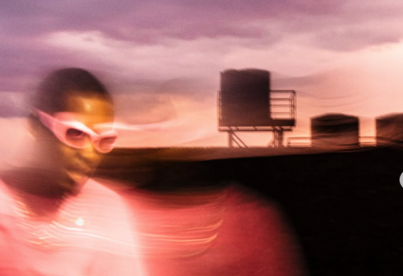
A couple of weeks ago HHP had one of the most important responses to a fan asking him about why his music is not available online. His response, although correct and insightful, was quite unexpected - in the sense that such a valid response was not pre-empted. If anything, one would've imagined him ignoring the question altogether if not simply answering by saying that he will have his music up soon and leaving it at that. You know those "diplomatic" responses that artists often give for inquiries about mishaps in their music offering? That's what one would expect.
Because I got all my masters back. I own all my projects. Needed to clear the system from the old record label that was selling the product. As of this year, we’re reloading the entire catalogue on digital platforms under Lekoko Ent. Luckily Music Hao Bole... https://t.co/R60bj88r7S
— Jabba™ (@HipHopPantsula) January 11, 2018
Let's get into the importance of what HHP said. He officially has back all his masters and owns all his career's work. At first glance you will say, "well, that's good for you." However, let's dig into the history of music ownership and consider how artists like HHP usually battle for their own music rights as if they did not birth the music. This is owed to the fact that record labels (or financiers of projects) typically own masters to everything that artists produce. Many major label contracts involve full ownership of all content created by a signee (depending on the kind of deal you are signing of course). "Masters" are rights to actual physical recordings, meaning that an artist or record label owns music and can therefore license it to anyone who wants to use it (for adverts, films, etc). In a record label conversation, licensing is something that the labels handle without the permission of the artist, and depending on your contract, the money often goes to the label as well (if you haven't made their money spent on you back). This explains why Jabba says that he had to clear "the system" from the old record label that was selling the product because sales platforms like iTunes/Apple Music pay the master owners for their sold or streamed music - not the artist.
In many cases, it's difficult to get your own masters back 'cause you usually owe the record label fees from their marketing, production, and any other expenses on making your product. So, them owning your masters means that they can continue generating their money back long after you're gone. This is the common reason for artists "dying as paupers" even though they had the greatest hits ever. When the bookings stop, the popularity dies, and all that's left is the nostalgia of the music, the artist will not be generating anything from their music if they cannot fully control the use of it for monetary gain. Worst of, some contracts prohibit artists from performing music that they produced with the label after they have departed from it. One would need to buy out their catalogue or win (legal) negotiations with their master owners in order to reach an agreement to convert ownership back to the artist.
Bear in mind, however, that master rights are different from publishing rights which are owned by "composers" of the track - from the songwriter to the producers involved on the song - or whomever copyrights the composed work. Publishing rights are equivalent to copyrighted ownership of the composition but these are also transferrable if an artist signs a publishing deal which states that another party has rights to the composition. Here, composers get remunerated for their music being played by music collecting bodies like SAMRO, SAMPRA, CAPPASO and RISA for instance. Important to note is that publishing rights don't give you the freedom to license your music if you don't own the masters.
Listen, this is a lengthy conversation but do you see why Jabba's tweet is so important and is ground for deeper conversation? You could ask yourself how he did it, and the answers could be plentiful. However, I feel the question should be how can artists grow relationships that allow them to exploit their music as owners of their own master rights instead of having to go through the process of creating the best work of their lives only to leave them behind for someone else to benefit from in the long-term?
Well done Jabba for going back for your masters. An admirable move that many of us can only dream of (if we've ever dealt with major labels that have owned our masters). On a good note, independent artists, you have a lot of work to do in terms of monetising your music via licensing avenues and more. GET TO DIGGING.

Hip-Hop sensation Tembipowers teams up with multi-platinum selling producer LD Beats to shake up the music scene with their dynamic collaboration proj...

It seems like yesterday when I heard MoneyBaddo Porn$tar album and from then I knew that her ear for music and creativity as a whole is unmatched. Mon...

Thank you thank you thank you please hold your applause Niggas challenge with no motion who's playing the beatles son...